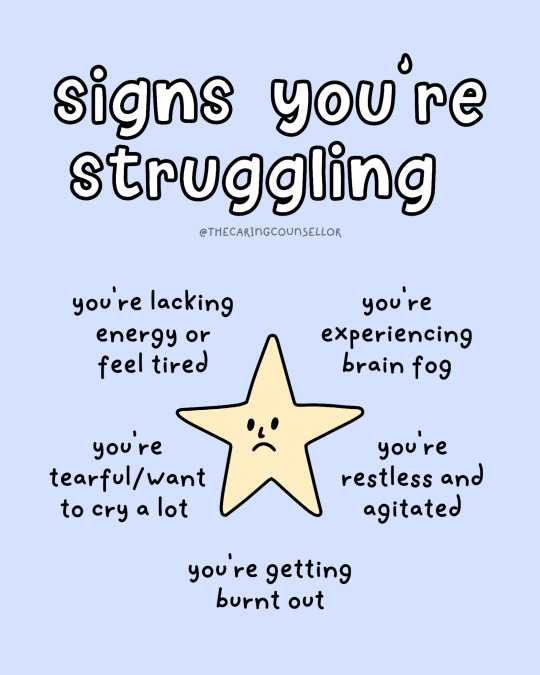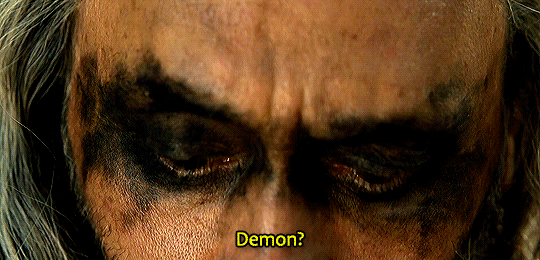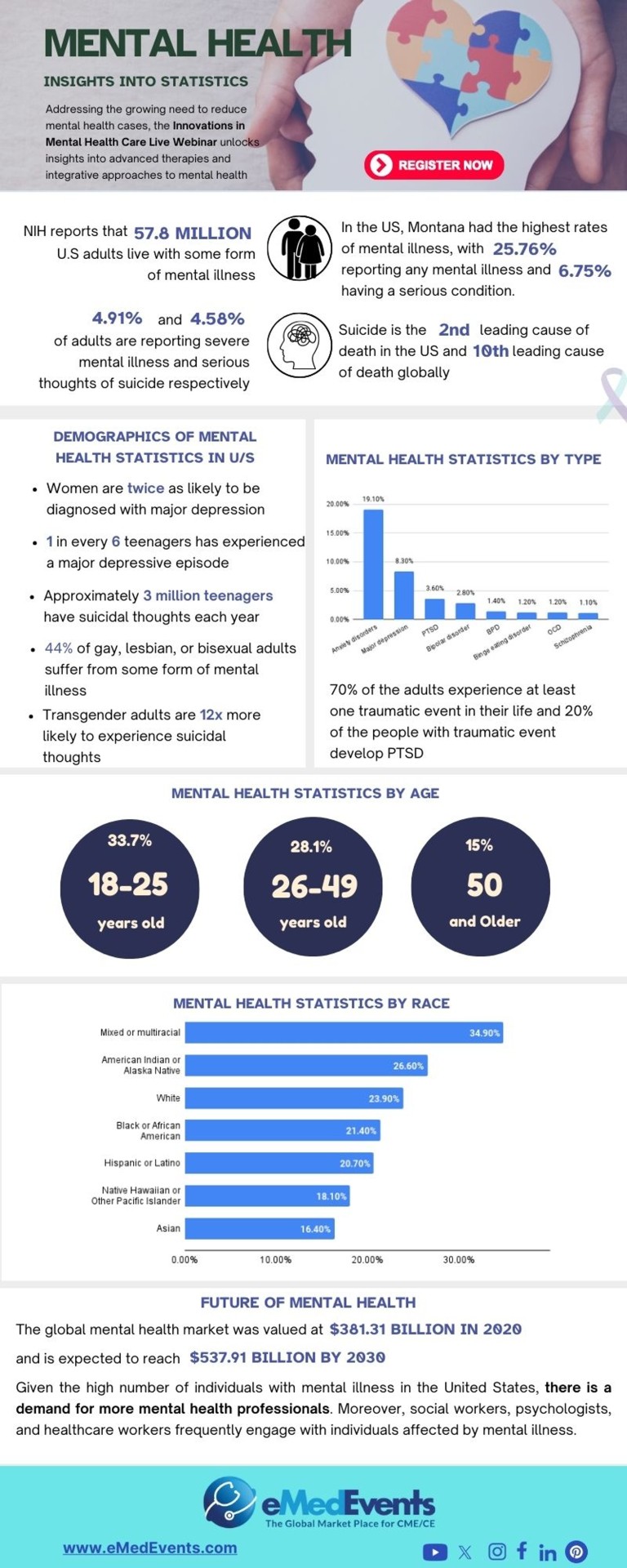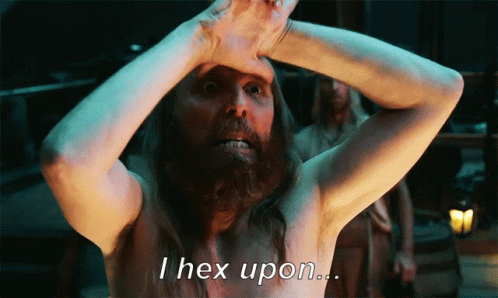#Mental Health Professional
Explore tagged Tumblr posts
Text
If you're experiencing this, please see your local GP/doctor/therapist/trusted family member or friend. You deserve to feel heard 💙

#inspiration#mental health#mental illness#motivation#positive mental attitude#self care#self love#positive#positivity#mental health tips#motivational quote#self help#getting help#you matter#mental health support#mentalwellness#mental health memes#mental health professional
1K notes
·
View notes
Text
Doctors, nurses (and others treating physical ailments), and mental health professionals, do you trust a patient who describes their experiences/symptoms with "medical language" more or less?
*Explanation: as medical language becomes more well known and more "mainstream" with the help of internet, their meanings can become diluted, and people can start describing their mild symptoms with terms that are more severe than their actual conditions.
(For example, feeling "out of it" could mean a general malaise, anxiety or dissociation, but if a patient described their symptoms with medical terms like "dissociative symptoms" without any proper examination from a licensed doctor, they could leave out the other two possibilities — general malaise and anxiety — which could affect their course of treatment, etc.)
This poll was submitted to us and we simply posted it so people could vote and discuss their opinions on the matter. If you’d like for us to ask the internet a question for you, feel free to drop the poll of your choice in our inbox and we’ll post them anonymously (for more info, please check our pinned post).
#poll#polls#medical field#doctor#doctors#nurse#nurses#mental health professional#healthcare#health#health and wellness#incognito polls#poll time#random polls#tumblr poll#tumblr polls#fun polls
13 notes
·
View notes
Text
little known fact: this scene is actually a recreation of the time my very religious CEO stormed into the residential facility i ran because she found out i let the kids have tarot cards



#ofmd#our flag means death#ofmd s2#ofmd season two#our flag means death s2#our flag means death season 2#Blackbeard#ed teach#Edward teach#ofmd edward teach#ofmd blackbeard#ofmd ed teach#our flag means death ed teach#our flag means death Blackbeard#our flag means death edward teach#mental health professional#taika waititi#con oniell#con o'neill#joel fry#izzy hands#frenchie#vico ortiz#ofmd jim#residential#therapist
51 notes
·
View notes
Text
being:
mentally ill for a very very long time & have extensive tx for myself
a mental health professional for 6+ years, in many capacities
i will say that i’ve developed many ~spicy opinions about the field, esp wrt the tx of addiction, personality disorders and psychosis and i often consider posting them and don’t end up doing it but maybe i should~~~
8 notes
·
View notes
Text
Not All Counselors Are Good For You
I’ve been the client to several counselors and the intern to several more. I have sat on the couch, hugged the pillow, and been asked, “How does that make you feel?” I have also been the person to guide the sessions – to listen carefully, dig into someone's psyche, and ask "Where would you like to go from here?”
More interestingly, I have observed what counselors are like behind the scenes. Spoiler alert, they are human and flawed – works in progress like everyone else… some more so than others.
The honest to goodness truth: There are many hoops a counselor must jump through to be licensed, but in reality, being healed themselves isn’t one of them.
One of many reasons people are attracted to the field of counseling is that they once needed it. For a counselor, having life experience – of struggle and pain – is a powerful tool: it provides a deeper level of understanding. However, if a counselor has not healed from their experiences, their ability to facilitate someone else’s healing is weakened.
When you go to the doctor, you expect them to at the very least not be intoxicated, right? Well, basically, unhealthy counselors are like intoxicated doctors who will vomit as soon as they see your blood. Once, I had a counselor say to me, “Oh, don’t cry, you’re going to make me cry.”
If a counselor hasn’t looked within themselves – taken stock of their cuts, bruises, scars, and broken bones – they might squirm in their seat when you tell them something you’re ashamed of, argue with you about your beliefs because they feel the need to defend their own, be unable to listen when you are pouring your heart out, and scold you like you’re their child.
Naturally, counselors have blind spots when assessing their own mental health. It seems there are always new things to learn, grow from, and adapt to; we and our worlds are ever changing. “Healing” never truly ends. Nonetheless, some professionals are more self-aware, honest, and motivated to work on themselves – to pick up a mirror and see what's hidden. While they may be scared of what they'll find, they are strong enough to keep going.
Seeking services from a licensed professional is like choosing to eat something FDA approved: in theory, it assures a certain level of quality; in practice, many without substance – without nutritional value – are licensed.
If you are a client, or will ever be a client, I want you to know: (1) not all counselors are healthy, (2) not all healthy counselors can offer what you specifically need, (3) there are some counselors that simply aren’t a fit for your personality, meaning it’s okay for you not to like a counselor regardless of their relevant knowledge and expertise, and lastly, (4) it's possible to outgrow your counselor… for a myriad of reasons.
Like working out at the gym, therapy is difficult, and if you're doing it right, there will be days your mind and heart are sore. Over time, you should see growth in yourself – change in the way you feel, think, and behave.
If your wounds aren't being addressed, if you feel you haven't been gaining new skills, or if you aren't learning anything, talk to your counselor about it. If they respond negatively, consider trying a different counselor. Ultimately, you are responsible for your mental health, and counseling costs too much money for it not to be helping.
I highly believe in the value of therapy, which is why I've decided to talk about it honestly. If you have any questions about counseling, feel free to contact me!
#mental health#counselor#psychotherapy#hot take#warning signs#therapy#emotional health#healing#self healing#self growth#mental health professional#psychology#self awareness#heal yourself
1 note
·
View note
Text
Separating Fact from Fiction: Psychiatric Medication Myths Uncovered

When it comes to mental health, there are many myths and misconceptions surrounding psychiatric medications. While these medications can play a vital role in improving the quality of life for many individuals, it’s easy for misinformation to create doubt and hesitation. In this post, we’ll clear up some of the most common myths about psychiatric medication and help you separate fact from fiction.
Myth #1: Psychiatric Medication is Just a Quick Fix
One of the biggest misconceptions is that psychiatric medications offer an instant solution to mental health challenges. Many people believe that a single pill can cure their struggles. The reality is that medication is often part of a much broader treatment plan that can include therapy, lifestyle changes, and social support. Psychiatric medication can help stabilize symptoms and make other forms of treatment more effective, but it’s rarely a “quick fix.” It’s about finding balance and long-term well-being, not a miracle pill.
Myth #2: Psychiatric Medication Will Change Who You Are
Another common myth is that psychiatric medicationwill alter your personality or “numb” your emotions. Some individuals fear that they will lose their sense of self or feel disconnected from their emotions. In truth, well-managed psychiatric medication should help you feel more like yourself, not less. Medications are meant to balance brain chemistry and alleviate symptoms like anxiety, depression, or mood swings, so you can engage with life in a healthier way. It’s all about helping you be the best version of yourself.
Myth #3: Medication is Dangerous and Overprescribed
It’s not uncommon to hear that psychiatric medications are dangerous or are being overprescribed. While it’s true that no medication is without risk, it’s important to remember that psychiatric medications are thoroughly tested and regulated. A mental health professional will carefully evaluate your situation before prescribing anything, and regular check-ins ensure the treatment is working effectively and safely. Medication is not handed out lightly—it’s prescribed based on individual needs and circumstances.
Myth #4: If Medication Doesn’t Work Right Away, It’s Not the Right Medication
Some people believe that if a psychiatric medication doesn’t show immediate results, it’s not the right choice. However, finding the right medication can take time. Every person’s body reacts differently to treatment, and sometimes it can take a few tries to find the perfect match. It’s important to be patient and open to adjustments, whether it’s the dosage or type of medication. Working closely with your provider is key to making sure the medication is doing its job effectively.
Myth #5: Psychiatric Medication is Only for Severe Mental Health Issues
Many people assume that psychiatric medications are only for those with severe mental health conditions, but that’s simply not the case. Medication can be helpful for a wide range of issues, including mild to moderate depression, anxiety, and sleep disorders. Mental health treatment is highly individualized, and psychiatric medications can be a useful tool for people in various stages of mental health challenges.
In Conclusion
Psychiatric medication management isn’t a one-size-fits-all approach, and there’s no reason to let myths and misinformation hold you back from seeking the help you deserve. When prescribed and monitored carefully by a professional, psychiatric medication can be an important part of a broader treatment plan. If you are struggling with your mental health, our team of therapists and nurse practitioners are here to help. Reach out to us by filling out our new patient form today. We are here to support you on your journey toward better mental health and well-being!
#mental health#mental health conditions#mental health treatment#mental health professional#medication management#psychiatric medication#anxitey#emotions#depression#mood swings#sleep disorder
0 notes
Text
Mental Health Professional | Behavioral Health Counselor
Expert mental health professionals and counselors in Nashua offer personalized care for executives. Consult our professional psychiatrists for tailored support.
Relentless work demands, tight deadlines, a competitive environment, and the added pressure of continuous achievement can often lead to heightened burnout, anxiety, and potential mental health risks for professionals.
The technology that has enabled an efficient remote-work culture also today has blurred the lines between personal and professional life, fostering an 'always-on' mentality that diminishes essentially 'me time.' The cumulative impact of these factors may result in fatigue, reduced job satisfaction, and compromised overall well-being, posing a considerable challenge to mental health.
On top of this, the challenges in establishing boundaries between work and home, work and kids, and work and exercise, coupled with limited time for self-care, gradually trigger feelings of stress, anxiety, sadness, and despair in professionals across all spheres.
For instance, nearly 40% of doctors in the United States feel emotionally, physically, and mentally exhausted from their work, and a lot of them are not satisfied with their jobs. The increasing cases of medical malpractice claims, alongside rising issues such as substance misuse and elevated suicide rates among doctors, are all rooted in underlying mental health challenges within the medical profession.
As mental health professionals, we're trained to understand the challenges faced by professionals and executives. We understand the unique stressors of your position, and our approach is designed to offer tailored assistance that effectively meets your requirements.
At PsychNashua our team of professional psychiatrists, behavior counselors, psychologists, and mental health professionals collaborate to help you navigate and overcome specific challenges in your professional life.
0 notes
Video
youtube
The Blame Game of Depression
#depression#mental health#mental health professional#don't let depression's mean brain bully you into silence!
0 notes
Text
Understanding and recognizing the signs of suicidal ideation is crucial for timely intervention. Mental health services in Windsor Mill, Maryland, play a significant role in providing the necessary support and resources. It’s essential to be aware of the subtle and obvious signs that someone might be considering suicide.
0 notes
Text

Innovations in Mental Health Webinar Secure your spot for the upcoming mental health live webinar to uncover the advanced therapies and integrative approaches in mental health treatment
#Innovations in Mental Health Care Live#mental health professional#mental illness#psychiatry#neuroscience#Psychiatric Disorders#healthcare webinar#mental health treatment#psychology#CME Programs#CME Conferences#CME Medical courses#CME credits#doctor conferences#medical CME#Primary Care Conference#Medical CME Online#Emergency Medicine Online CME#Medical Conference Website#Physician Conferences#Medical CME Courses#Doctors CME Conferences#CME training for Physicians#Medical Event Organizer#Organizing Medical Events#Medical Conferences#Medical Speakers#Healthcare Marketplace
0 notes
Text
Flight - Trauma Response

Day 2! The FLIGHT response.
If flight is your response to trauma, you might find ourself…
Acting fearful
Avoiding
Withdrawing
Procrastinating
If you find that you resonate with these symptoms, consider reaching out to a mental health professional who can support you with moving through your trauma. Click the link in our bio to schedule a free phone consultation today!
0 notes
Text
do you guys ever think about that time in season 3 when buffy had to talk to the school counselor and he was played by mr. moseby and at first she was all dismissive of it but then he actually got through to her so she went back to his office and admitted that she was scared and actually asked for help but it turned out that she was talking to mr. moseby's dead body and then for the rest of the show she never asked anybody for help ever again? because I think about it every day
#society if mr. moseby had lived and buffy actually had a mental health professional she could go to about her problems#btvs#buffy the vampire slayer#buffy summers
3K notes
·
View notes
Text
Dr Vanessa Jones - A Dedicated Mental Health Professional
Dr. Vanessa Jones, a Mental Health Professional, is fueled by her passion for helping others. While she is now semi-retired, she looks back on her career with a sense of fulfillment. Her personal life goals include becoming an accomplished equestrian and leaving a positive impact on those she encounters.
1 note
·
View note
Text
i mean this with 100% sincerity
buttons makes me miss working in the emergency room

#i can't tell you how many clients have tried to give me exorcisms#its the thought that counts#our flag means death#ofmd#ofmd buttons#buttons#our flag means death buttons#mental health professional#therapist#crisis therapist
15 notes
·
View notes
Text
How To Choose The Right Therapist For You? | Solh Wellness
One frequently wonders this when thinking about counseling or therapy. Most of us either go to a therapist that has been recommended to us or use web listings to identify nearby ones. We discuss our own experiences in therapy with our counselors because we connect with them personally. We also seek their advice on how to handle challenging situations that have a negative impact on our mental health.

Look for these thing while finding the right therapist :
Credential: Verify the therapist's credentials to learn if they possess the abilities needed to address your difficulties. Finding a relationship counselor would be wise since they can approach your illness more gradually and successfully than a therapist who concentrates on rehabilitation. Every therapist has a certain area of expertise.
Compatibility: An effective course of treatment depends on the relationship that develops between the therapist and their patient. Although it may be thrilling to have a terrific therapy session, not everyone will experience the same results. It's crucial that you feel at ease and connected to your therapist. Collaboration, effective communication, and a common understanding of the goals and therapy modalities make up the "therapeutic alliance". According to research, the therapeutic alliance is more significant than any particular therapy strategy. Regardless of therapeutic approach, patients seem to react better to therapists who actually care about them. In order for the alliance to stay strong, therapists are encouraged to observe interactions and address any problems that might be impairing communication or trust. Eventually, the therapist-patient interaction has a significant effect.
Therapy: When choosing a therapist, take into account your preferences and general health. Effective short-term therapies for anxiety and depression include cognitive behavioral therapy (CBT) and interpersonal therapy. Psychoanalytic therapy might be better in some situations. Somatic experience and other body-centered therapies can be used to cure trauma. A therapist's methods will vary depending on your needs.
Things to remember after scheduling an appointment:
We've talked about how crucial a good fit is, but here are some questions you can ask the therapist and yourself to guide your decision:
Comfort and Connection: Is it alright if I share and open up to this person? strong sense of empathy and focus on the part of the therapist.
Agenda and Commitment: Without asking you or describing your options, are they pressuring you to make a decision?
Credentials and Expertise: Are they aware of your condition? What are their qualifications?
Therapy Options: Can they explain why one therapy would be more useful to you than another?
Fees and Billing: How is payment managed, and is there flexibility?
Collaboration: How do they work together with your primary care physician or therapist to improve the standard of service?
Availability:Do they offer evening or weekend hours, and how often should sessions occur?
Goals: What are the predetermined therapeutic goals and outcomes?What are the pre-set therapeutic objectives and results?
What to expect during treatment and how to decide when to stop:
Initial Challenges:The initial signs of latent issues frequently worsen. If this is making you think about stopping, speak with your therapist first.
Emotional Shifts:It's typical to feel conflicted about your therapist; this is referred to as "transference." Fighting this prevents early failure and deters erroneous advancement.
Engaging with Homework: Plans for therapy, such as CBT, could call for relaxing activities like journaling. If you disagree with it at this point in your growth, your therapist should check into it.
Therapeutic Goals: Discover fresh information about your relationships, health, and self. increased self-care, improved anger, hopelessness, and anxiety control, and prevention of relapse.
Medication Transition: Work with your mental health professional to safely lower your medication usage if at all possible. Self-adjustment should be avoided due to its risks.
Closure Talks: Talk to your therapist about stopping therapy once you have achieved your goals. Your success benefits from outside input from friends and family because it provides fresh perspectives.
Sustained Progress:Keep in mind that development often continues long after therapy is over.
Conclusion
The decision a therapist makes can have a big impact on how well therapy works to promote mental wellness. It's important to give this decision significant thought, considering qualifications, a personal connection, and the sort of therapy into account. Progress is based on a solid therapeutic alliance and open communication. Accepting challenges, controlling emotions, and actively engaging in treatment duties are crucial throughout the therapy process. Setting goals, taking medication changes into consideration, and making preparations for closure are all important as therapy progresses. In the end, therapy is a collaborative process that, when carried out with deliberate thought and effort, can result in long-term personal growth, enhanced wellbeing, and advancement.
Solh Wellness' "Solh Discovery Session" aids clients in locating the most appropriate therapist for their requirements and is one of our many comprehensive mental health services. In order for you to practice self-care and mindfulness, we also offer tools and resources for self-help.
#therapist for mental health#mental health professional#licensed psychologist#online therapy options#mental health counsellor#mental health therapist#mental health counseling
0 notes
Text
(unapologetically and with my full chest) if you became a mental health professional to 'save' people with jesus because you felt 'saved,' you're not a good mental health professional and should quit immediately.
#mental health professional#therapist#your christian religious rhetoric has zero place in a therapeutic setting
0 notes